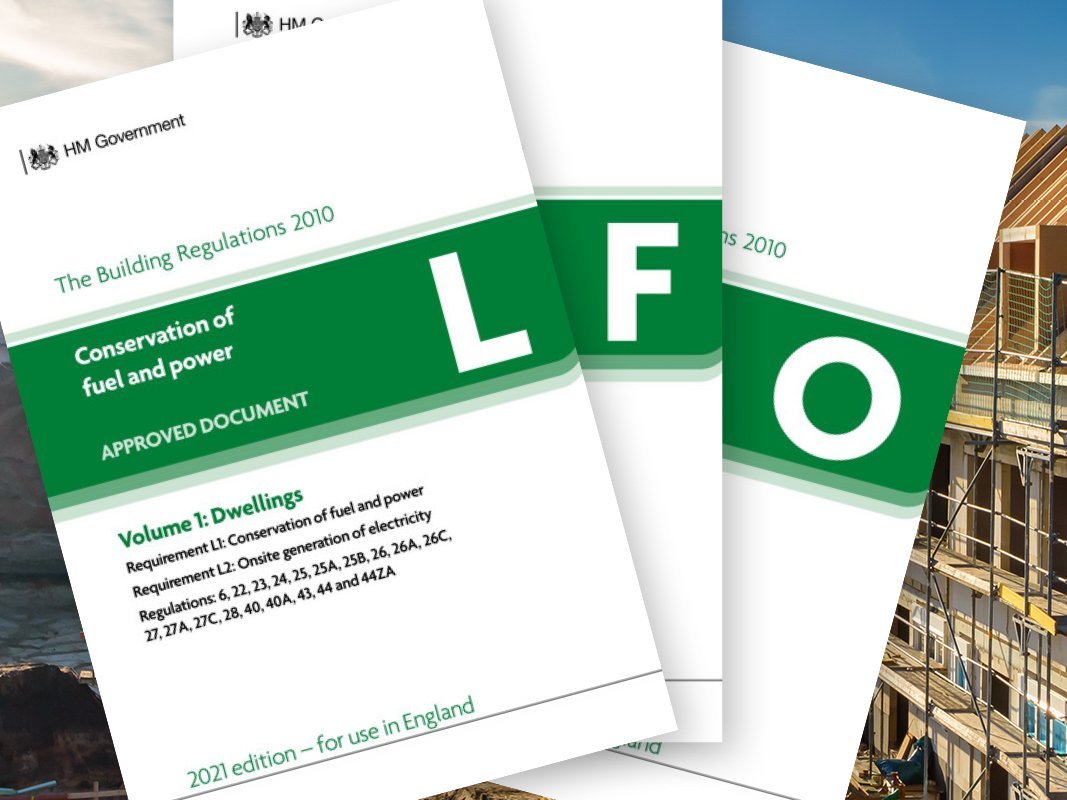
COMPLYING WITH CURRENT BUILDING REGULATIONS
Parts L - Conservation of fuel and power
Current Thermal Performance compliance levels for windows and doors. (England) – Nov 2022
Building Regulation (Approved Document L - Conservation of Fuel and Power) compliance levels for Windows and Doors for England changed on 15th June 2022.
• Maximum U-Values for replacement products are now 1.4 W/m²K.
• Whilst limiting U-Values for new fabric elements in new buildings are 1.6 W/m²K for windows and doors, the building element will have to be better than the value stated in table 4.1 of the regulations* to achieve the target fabric energy efficiency rate for the whole building. The value of 1.6 for windows and doors is a potential trade-off for using very thermally efficient materials elsewhere in the building. However, windows and doors with a greater than 60% glazed area should have an overall U-Value of 1.2 W/m²K.
WER vs U-Values
Alternative compliance can also be achieved via an approved Energy Ratings scheme
• Windows: WER Band “B” or better
• Doors greater than 60% glazed area: DER Band “C” or better
• Doors less than 60% glazed area: DER Band “B” or better.
Energy Ratings introduced into the building regulations do not directly correlate with U-Values, they are two different methods of compliance. It is a common misunderstanding throughout the industry that people often confuse energy efficiency with thermal efficiency. Windows with higher WER ratings offer good energy efficiency – but this does not automatically mean that they are any more thermally efficient.
U-Values measure how well the window is working as a thermal insulator – the lower the U-Value, the greater in thermal efficiency performance. WER ratings are used for replacement windows and doors and are not accepted for new build compliance; the initial concept of the WER scheme was to allow consumers and specifiers to compare competing products using a simple and easy to understand ratings and labelling system. The WER energy rating is an energy balance of positive contributions from solar gain minus the negative factors of thermal heat loss and air leakage.

Part F - Ventilation

Part O - Overheating

UKCA Certification
UK Conformity Assessed
CE to UKCA Transition
The new UKCA (UK Conformity Assessed) Marking scheme has been operation since January 2021. However, to allow businesses time to transition, the implementation was delayed. UKCA is designed to mimic CE (mirroring BS EN 14351) over all industries and sectors, meaning there will be little change and that it will generally operate in the same manner as CE Marking. Under the UKCA Marking scheme, only U-Values are acceptable in showing compliance - window (WER) and door energy ratings (DER) are not suitable.
From the 1st January 2023 the UKCA mark must be shown. Whiteline is and has been for some time fully UKCA compliant and all relevent Markings appear on the appropriate paperwork.
VIEW MORE





